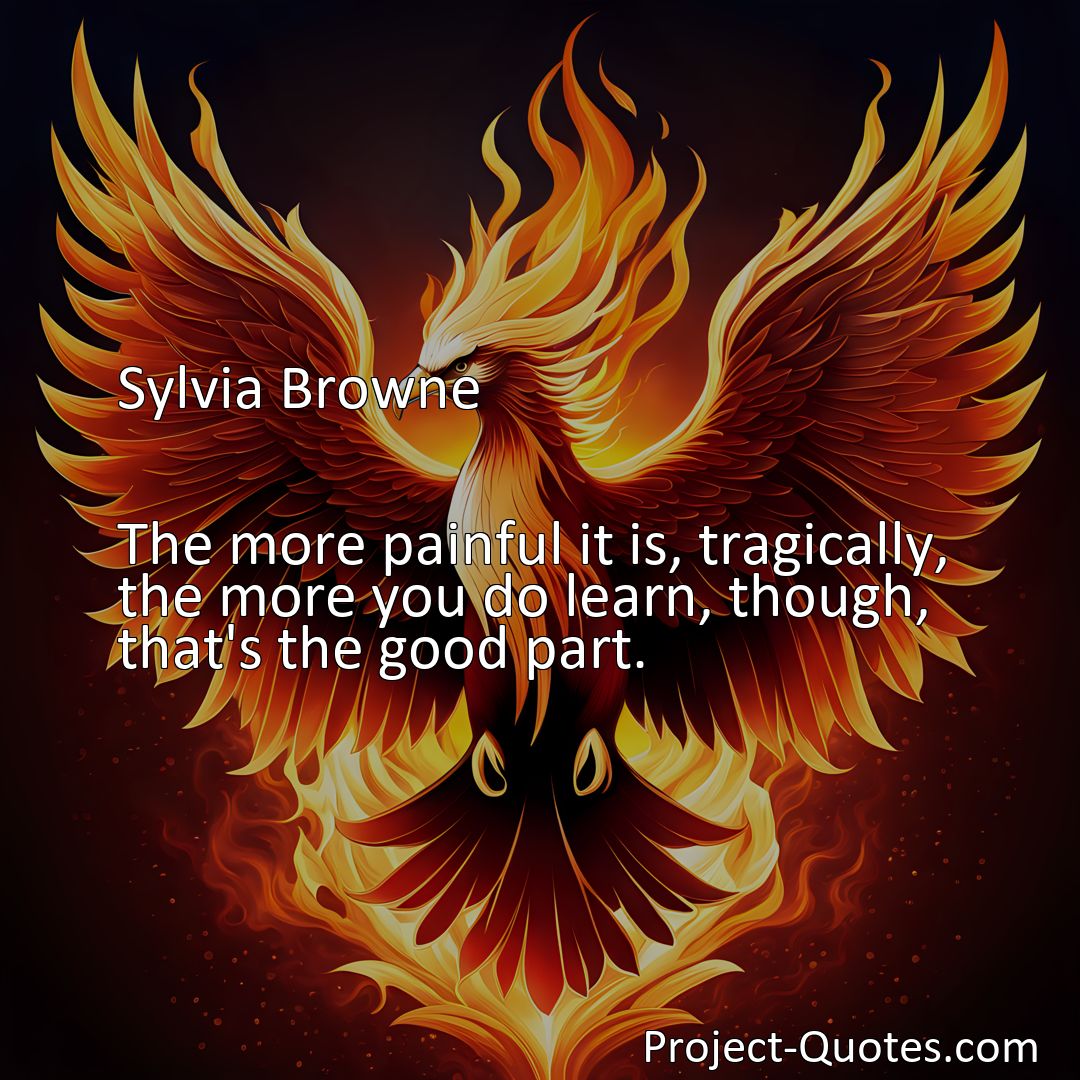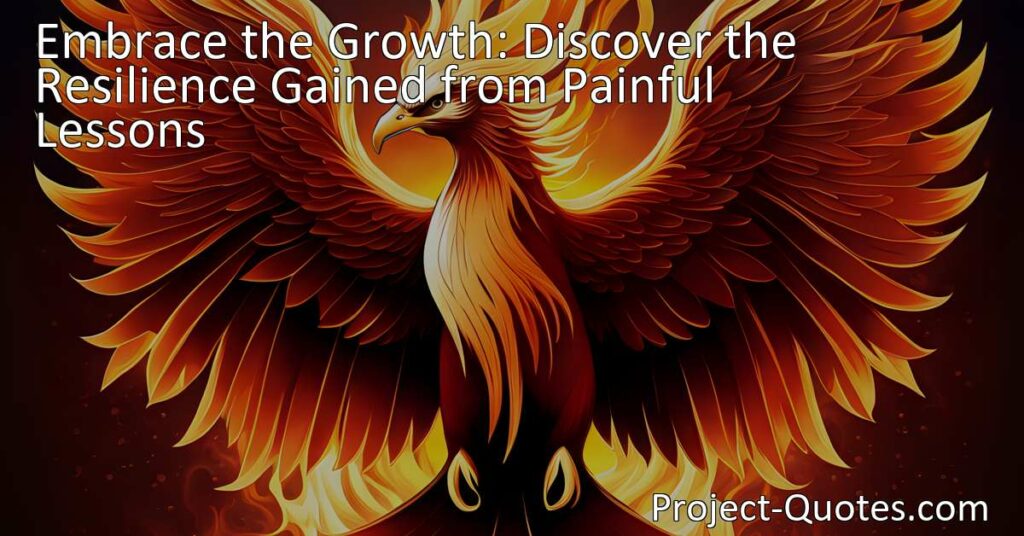The more painful it is, tragically, the more you do learn, though, that’s the good part.
Sylvia Browne
Painful experiences are often necessary for personal growth and development. They force us out of our comfort zones, teach us important life lessons, foster empathy and compassion, and motivate us to make positive changes in our lives. By embracing the lessons learned from pain, we can become stronger individuals and lead more fulfilling lives.
Table of Contents
Meaning of Quote – The more painful it is, tragically, the more you do learn, though, that’s the good part.
We often hear the saying, “no pain, no gain,” which suggests that we need to endure hardship in order to grow and learn. While it may seem counterintuitive to associate pain with positive outcomes, the truth is that many valuable lessons and personal growth often stem from difficult or challenging experiences. In fact, the more painful the experience, the more opportunity we have to learn and develop as individuals. Though it may be difficult to acknowledge the benefits of pain, it is important to recognize that it can ultimately lead to personal growth and improvement.
One of the key reasons why painful experiences facilitate learning is that they often force us out of our comfort zones. When we encounter obstacles or face adversity, we are compelled to think critically, problem-solve, and adapt. These challenges push us to explore new perspectives, develop resilience, and discover our own capabilities. Whether it’s dealing with a difficult situation at school, navigating a troubled relationship, or facing personal setbacks, the pain we experience can teach us to be more resilient and find strength within ourselves.
In addition to building resilience, pain also teaches us important life lessons. When we go through difficult experiences, we gain a deeper understanding of ourselves and others. Pain can act as a catalyst for self-reflection and introspection, allowing us to evaluate our choices, values, and priorities. By examining our behavior and the consequences it brings, we can often identify areas in our lives that require improvement or change. This self-awareness helps us make better decisions, cultivate healthy relationships, and lead more fulfilling lives. Painful experiences have a way of revealing our true selves and guiding us towards personal growth.
Furthermore, painful experiences often foster empathy and compassion within us. When we go through challenging times, we gain a greater understanding of the struggles others may face. This newfound empathy allows us to connect with others on a deeper level and offer support and understanding. It reminds us that we are all human, susceptible to pain and vulnerability. Through our own experiences with pain, we develop a sense of compassion that allows us to support and uplift those around us.
Moreover, pain can serve as a powerful motivator for change. When we experience pain, whether it be physical or emotional, we often have a strong desire to alleviate it and prevent future instances. This drive forces us to take action, seek solutions, and make the necessary changes in our lives. Pain acts as a wake-up call, urging us to reevaluate our choices and behaviors. It encourages us to seek personal growth and improve our overall well-being. By embracing the lessons learned from pain, we can make positive changes that lead to a happier and more fulfilling life.
Despite the inevitable discomfort, pain can be seen as a catalyst for personal transformation. It challenges us to confront our fears, step outside our comfort zones, and strive for self-improvement. Many great figures throughout history have attributed their success and personal development to the painful experiences they endured. Pain teaches us resilience, self-reflection, empathy, and motivation for change – all fundamental qualities necessary for growth.
It is important to note that while pain can provide valuable lessons, it should not be romanticized or sought after. Deliberately seeking pain is not healthy or productive. Pain should be viewed as a part of the human experience, and when it naturally occurs, it is an opportunity for growth. It is crucial to seek support from friends, family, or professionals when experiencing significant levels of pain, as well as to prioritize self-care and wellbeing.
In conclusion, the saying, “the more painful it is, tragically, the more you do learn, though, that’s the good part,” holds a profound truth. Painful experiences offer opportunities for personal growth, resilience, self-reflection, empathy, and motivation for change. While pain may be uncomfortable and challenging, it is important to recognize the potential benefits it can bring. By embracing the lessons we learn from pain, we can cultivate a stronger sense of self, forge deeper relationships, and lead more fulfilling lives.
Freely Shareable Quote Image
I hope this quote inspired image brings you hope and peace. Share it with someone who needs it today!


